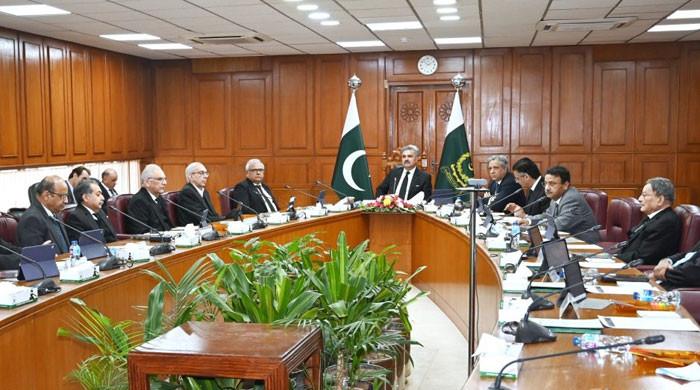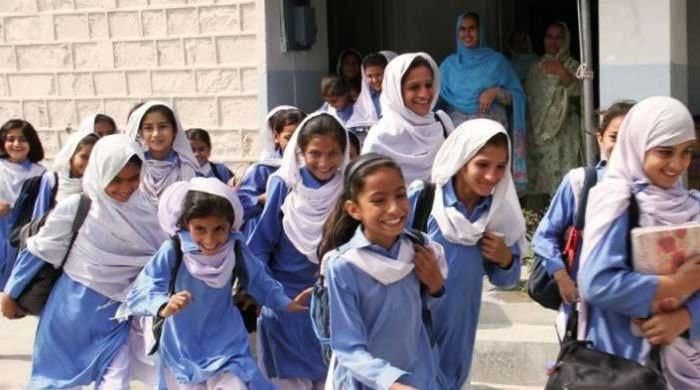PTI to reshuffle top bureaucracy under first 100-day plan: sources
The strategy was finalised in a top-level huddle chaired by the PTI chief Imran Khan
August 17, 2018
ISLAMABAD: Pakistan Tehreek-e-Insaf has decided to reshuffle top federal and provincial bureaucracy under its first 100-day plan, sources informed Geo News.
The strategy was finalised in a top-level huddle chaired by the PTI chief Imran Khan, attended by Shah Mehmood Qureshi, Jahangir Tareen and former Khyber Pakhtunkhwa chief secretary Arbab Shehzad.
The party's top leadership approved Shehzad's recommendation of changing the chiefs of federal and provincial state institutions, and officers previously appointed on political pressure.
Sources have said that Imran Khan has decided to change the heads of Federal Board of Revenue, NEPRA, Railways, Pakistan International Airlines and a few other institutions.
The PTI has decided to appoint people with expertise in the relevant department within first 100 days of the government. The government will evaluate the performance of its appointee after the 100-day deadline.
PTI 100-day plan
PTI introduced its first 100-day plan a few days before the July 25 general election. PTI leaders spoke about the merger of Federally Administered Tribal Areas with Khyber Pakhtunkhwa, the creation of South Punjab province and giving greater authority to the government in Balochistan, as a part of their plan.
While speaking about economic growth, the incoming finance minister Asad Umar said that the party would create 10 million jobs within five years if their party comes to power.
He said the party would promote the manufacturing industry and pave way for the growth of small and medium enterprises.
Umar also promised they would turn government guest houses into hotels and open them for tourists. Besides, he added, five million houses would also be constructed for the homeless population of the country.
A part of PTI’s agenda would be improving the agriculture sector of the country, promised Tareen.
He said their party would take measures to make agriculture profitable for farmers. Tareen added they would also provide financial help to farmers so that they could become self-sufficient.











